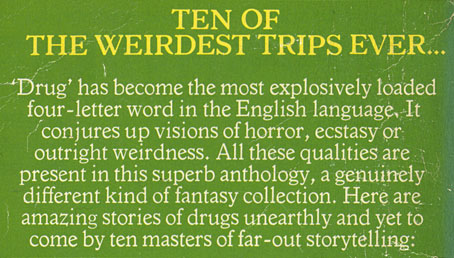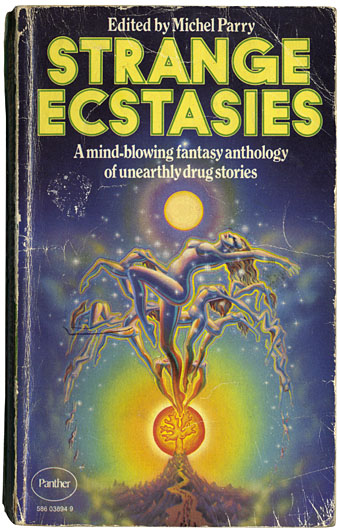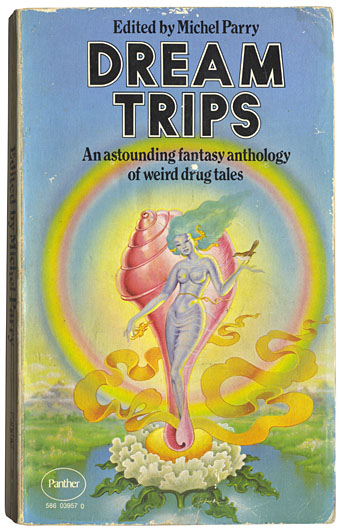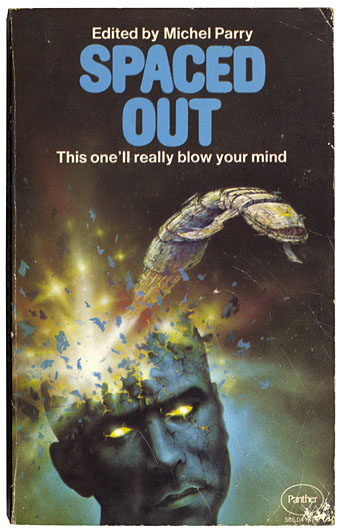Avebury Kite (2006) by David Alderslade.
• “Klaus Mann, son of Thomas Mann, author of Mephisto, was one of the first in Germany to write gay novels and plays.” Walter Holland reviews Cursed Legacy: The Tragic Life of Klaus Mann by Frederic Spotts.
• The Pale Brown Thing, a shorter/alternate version of Fritz Leiber’s supernatural masterwork, Our Lady of Darkness, is given a limited reprinting by Swan River Press next month.
• “Not only is metal not directly harmful to adolescent minds, as the thinking goes, it may actually be helpful.” Christine Ro on the reappraisal of a once-suspect musical genre.
Something of that tension between past and future is visible in Beardsley’s work. It is the art of a dying era peering, with a mixture of excitement and trepidation, into the next. For all the prancing and bravado, Beardsley’s art was really about finding something in which to believe—and if Beardsley came to believe in anything it was the deep black line. Shading held little interest for Beardsley, and color fascinated him not at all. The black line and white space were all he needed.
Morgan Meis on Aubrey Beardsley
• More of my art for Bruce Sterling’s forthcoming Dieselpunk novella, Pirate Utopia, has been revealed. Tachyon will be publishing the book in November.
• “Secretly, though, I frequent junk shops because I am wishing for some kind of transcendence,” says Luc Sante.
• Mixes of the week: Gizehcast #28 by Christine Ott, and a mix for The Wire by Asher Levitas.
• “It took centuries, but we now know the size of the Universe.” Chris Baraniuk explains.
• Barnbrook Studios creates identity for Kubrick exhibition at Somerset House.
• Watch a haunting video from Subtext Recordings and Eric Holm.
• Folklore Tapes: A Rum Music Special by Joseph Burnett.
• Brion Gysin’s Dreamachine is on sale again.
• Rhys Chatham’s favourite albums.
• Zero Time (1979) by Chrome | Zero-Gravity (1996) by Sidewinder | Zero Moment (2016) by Contact






